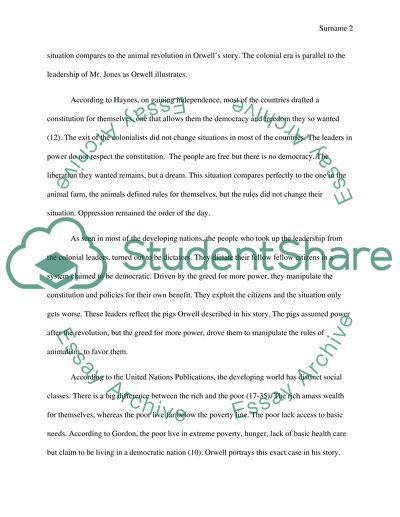Cite this document
(“Contemporary Relevance of the Novel Animal Farm Essay”, n.d.)
Retrieved from https://studentshare.org/literature/1438391-animal-farm-by-george-orwell-compared-or-related
Retrieved from https://studentshare.org/literature/1438391-animal-farm-by-george-orwell-compared-or-related
(Contemporary Relevance of the Novel Animal Farm Essay)
https://studentshare.org/literature/1438391-animal-farm-by-george-orwell-compared-or-related.
https://studentshare.org/literature/1438391-animal-farm-by-george-orwell-compared-or-related.
“Contemporary Relevance of the Novel Animal Farm Essay”, n.d. https://studentshare.org/literature/1438391-animal-farm-by-george-orwell-compared-or-related.


